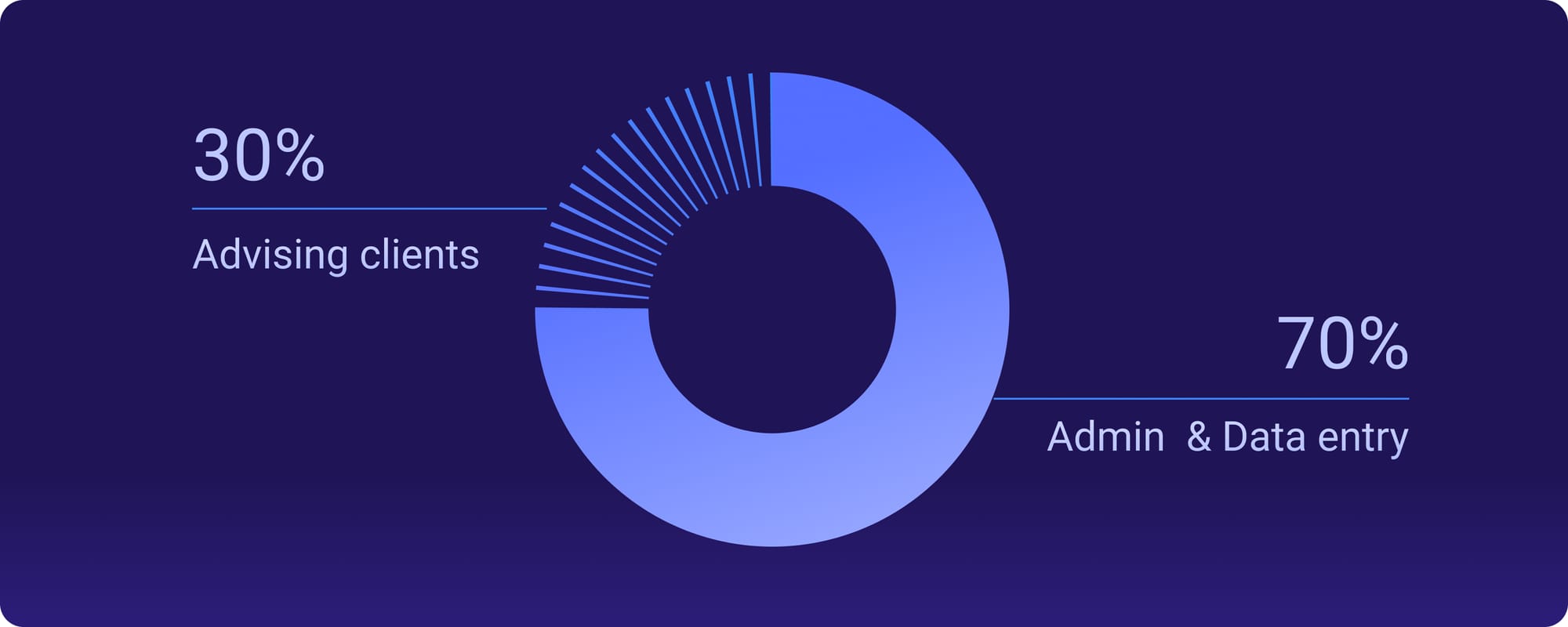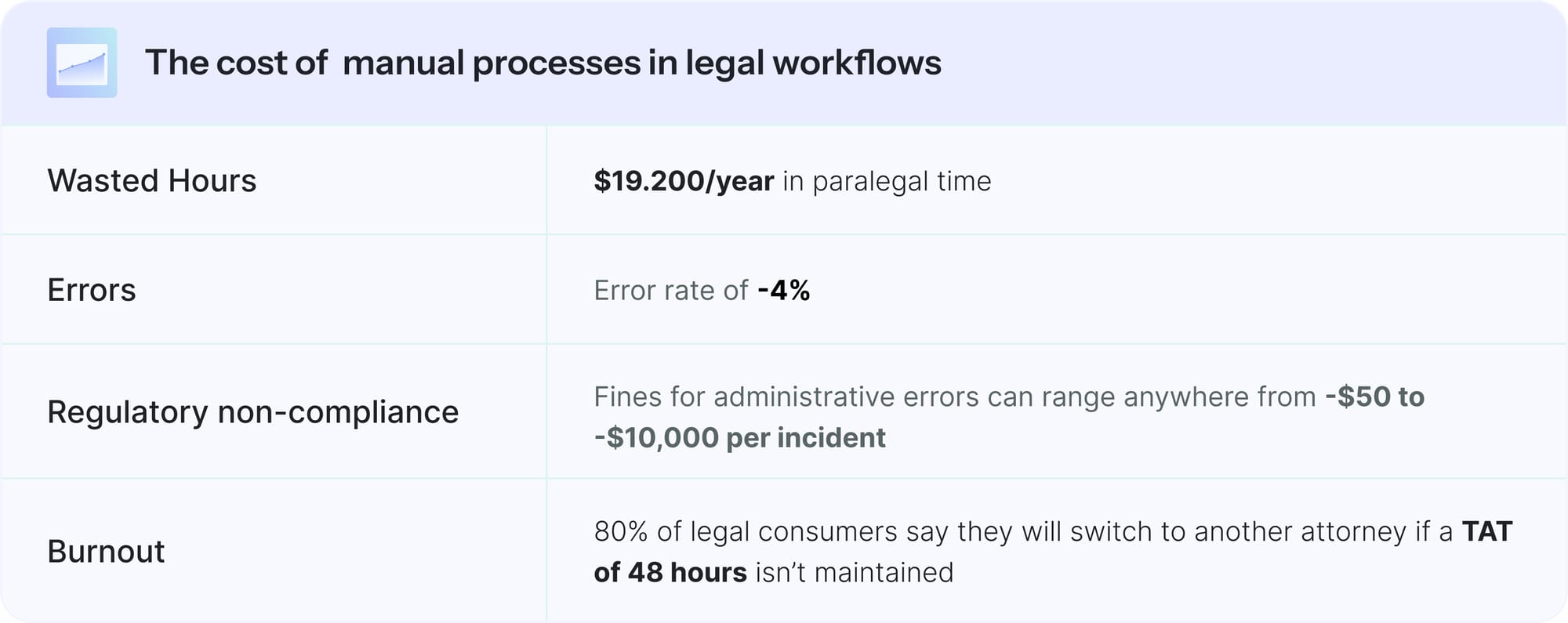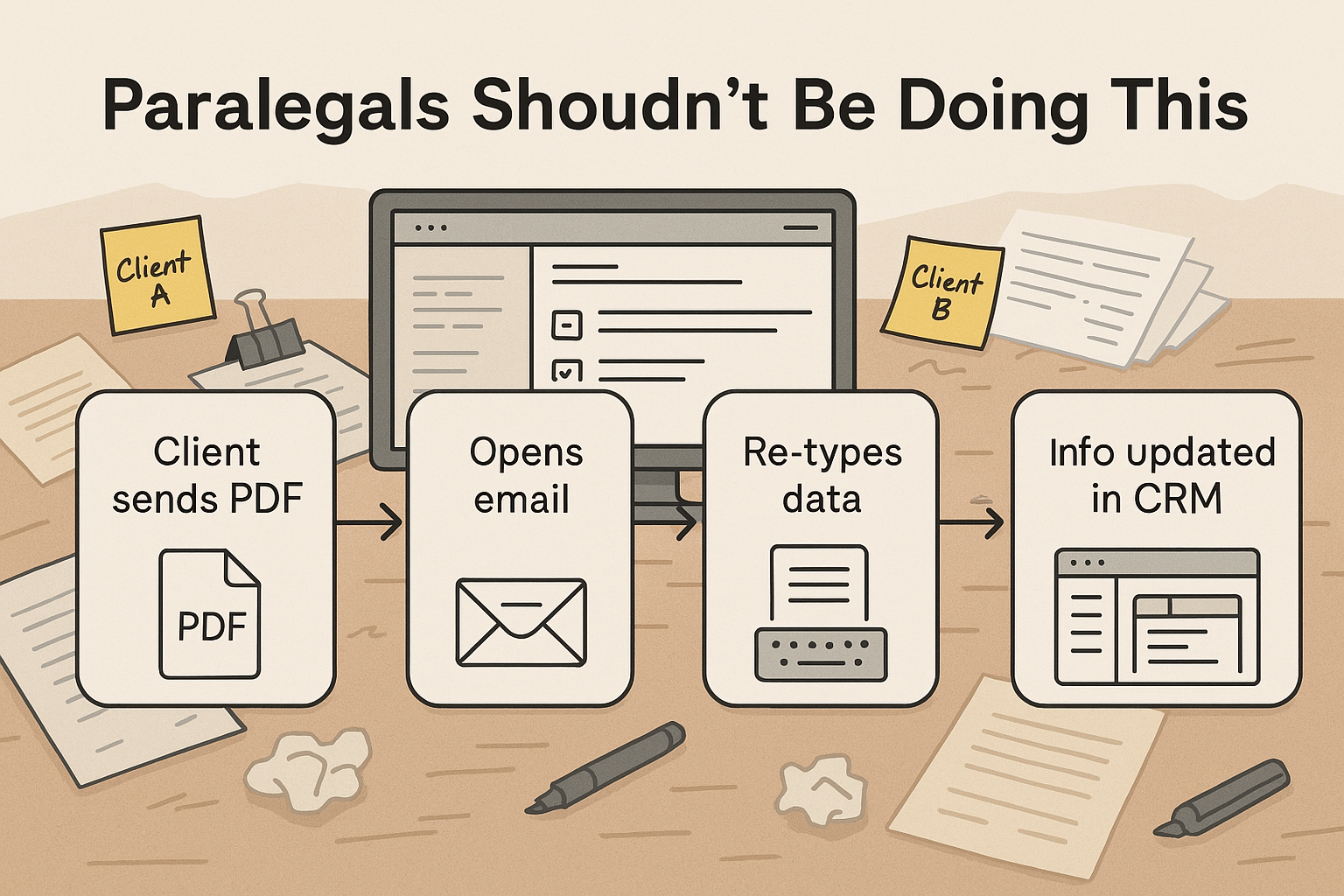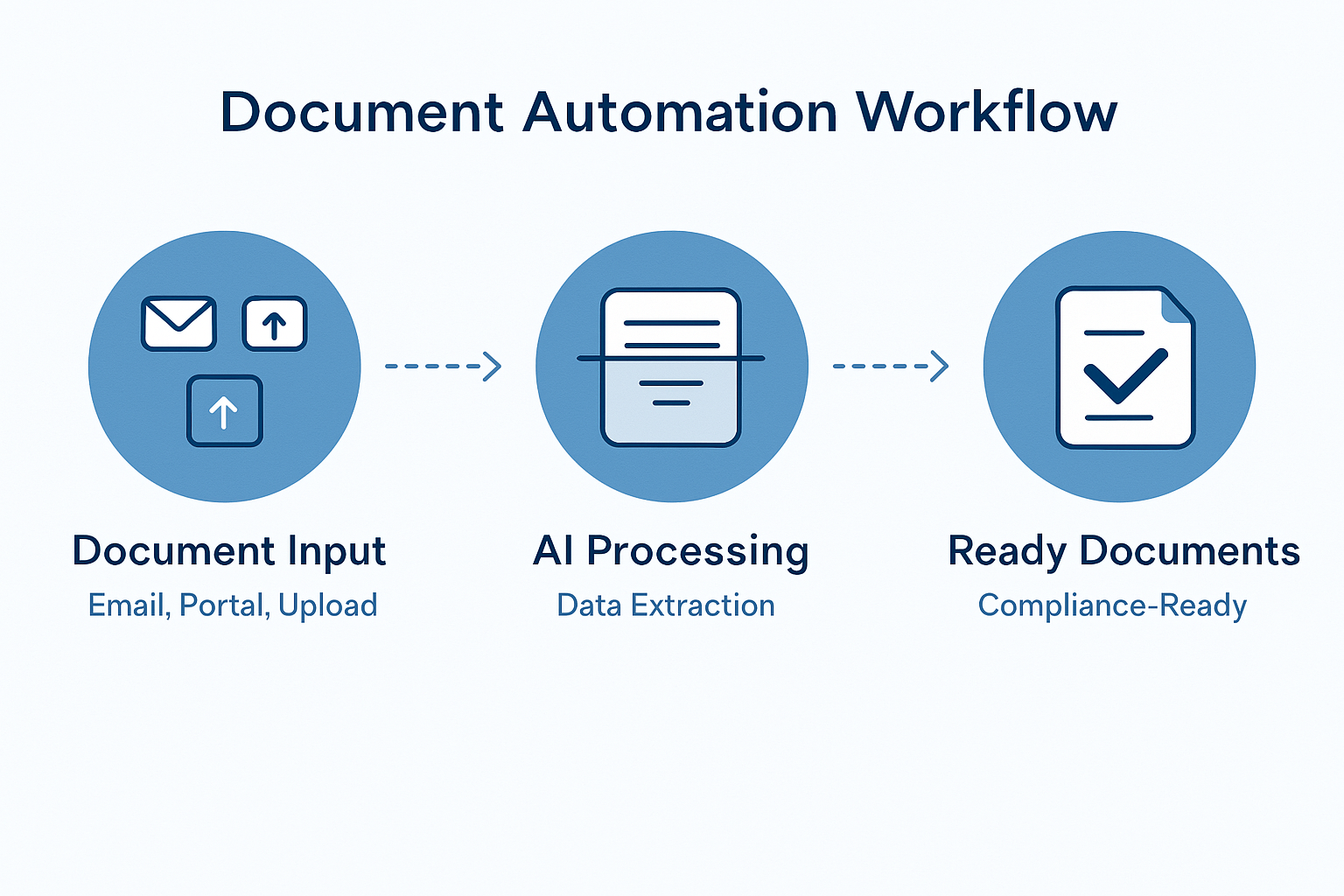I used to be on a name just lately with a mid-sized property planning agency in Texas. The lead paralegal advised me, “We spend extra time getting into and cross-checking consumer information than truly advising shoppers.” And that’s not an remoted grievance. Companies of all sizes are grappling with an issue that feels old-school however continues to eat away at margins: handbook information entry.
For those who’re an property planning legal professional, paralegal, or workplace admin, you are in all probability all too acquainted with the grind. Dozens of paperwork per consumer. Wills, trusts, energy of legal professional varieties, deeds—every filled with vital data. Now multiply that throughout your consumer base and add the stress of deadlines, compliance checks, and billing cycles. It is no shock that handbook information entry is greater than a nuisance; it is a productiveness killer.

The Hidden Prices of Handbook Entry
Handbook information entry is not nearly time. It carries tangible prices that add up:
- Wasted hours: Employees spend 4-10 hours per week copying information into CRMs, spreadsheets, or doc templates.
- Error charges: Even with double-checking, human error charges can hover round 1-2%. In authorized work, a miskeyed identify or incorrect date can have actual penalties.
- Burnout: Employees frustration rises when extremely certified authorized professionals are caught with clerical work. That results in turnover, hiring complications, and coaching prices.
- Slower consumer turnaround: Time spent on handbook duties delays case development and frustrates shoppers anticipating responsiveness.

How It Reveals Up in Day-to-Day Work
From working with property planning corporations, listed below are widespread bottlenecks we see:
- Paralegals toggling between scanned paperwork and CRMs to retype consumer names, dates, and belief values.
- Admins renaming and categorizing information manually, with no constant taxonomy.
- Secretaries cross-referencing case paperwork to make sure clauses match consumer directions.
- Groups spending Friday afternoons importing information into follow administration methods.
These aren’t simply anecdotes. They present a damaged workflow.

What Automation May Look Like As a substitute
Let’s flip the script. Think about this:
- Consumer sends paperwork through electronic mail, consumer portal, or uploads.
- Automation reads each web page, identifies names, addresses, monetary values, doc sorts, key clauses.
- Information is validated, mapped to your follow templates, and pushed into your CRM or doc administration instrument.
- A ready-to-review draft is delivered to your workforce—personalized and compliance-ready.
It’s not a dream. Property planning corporations are already doing this with Nanonets.
Hear it from considered one of our consumer!
“Earlier than Nanonets, processing a single file took over half-hour—now it takes lower than a minute. We’ve reduce errors, diminished workers burnout, and freed up hours every week for precise consumer conversations.”
– Associate, Property Planning Agency, California
How Nanonets Helps
Nanonets affords an end-to-end automation platform constructed particularly for document-heavy workflows like property planning.

Right here’s how we clear up the issues we have outlined:
- Clever OCR and doc classification: Routinely detect doc sorts (wills, deeds, POAs) and extract key information from them.
- Customized discipline extraction: Pull out names, dates, authorized clauses, and monetary values irrespective of the format or format.
- Seamless integrations: Push extracted information immediately into your CRM, doc administration instrument, or case administration system.
- Audit-friendly workflows: Guarantee each step is logged, verifiable, and safe—assembly compliance requirements effortlessly.
- No-code customization: Arrange your individual guidelines, templates, and logic flows with out writing a single line of code.
Whether or not you are dealing with 5 shoppers per week or 50, Nanonets may give your workforce time again, scale back operational overhead, and unlock new ranges of productiveness.
Closing Ideas
Handbook information entry in property planning is a hidden tax in your agency’s productiveness. But it surely doesn’t must be. Automation can release hours every week, scale back errors, and let your workforce give attention to what issues most: offering wonderful authorized counsel.

